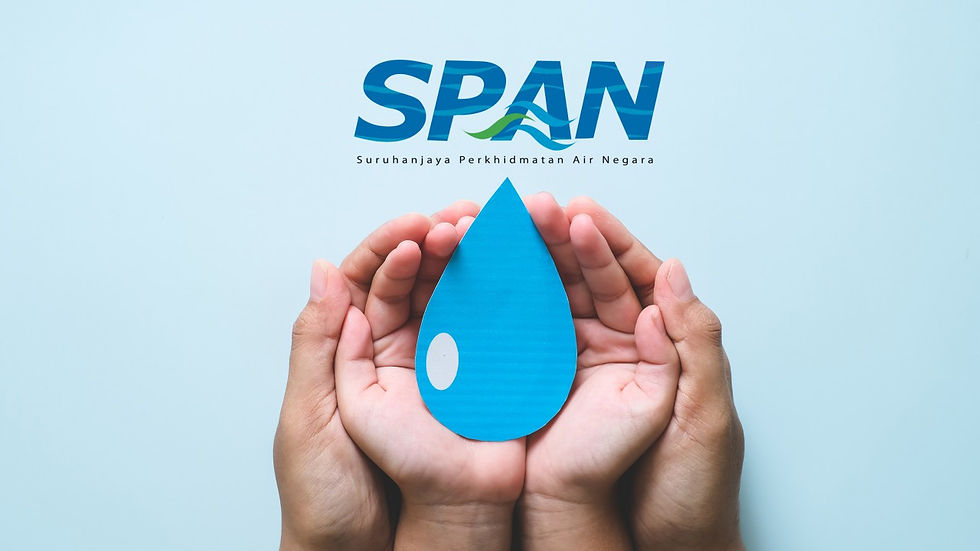
Silterra Malaysia Sdn Bhd
The Resource Efficiency & Industrial Symbiosis (REISO) and GHG Assessment (MFCA & ISO 14064) conducted for Silterra evaluated three years of operations to identify cost drivers, emission hotspots, and opportunities for industrial symbiosis. The study applied Material Flow Cost Accounting and GHG analysis to uncover circular economy and sustainability opportunities within the production process. These insights provided a clear direction for resource optimisation and emission reduction strategies, supporting Silterra’s commitment to sustainable manufacturing. The initiative also demonstrated how data-driven REISO assessments can guide long-term operational improvements and enhance business resilience.

Tenaga Nasional Berhad
The Environmental Footprint Assessment for Tenaga Nasional Berhad (TNB) provided critical insights into its carbon and resource impacts, forming the foundation for a tailored decarbonization roadmap. The study evaluated emissions across Scopes 1, 2, and relevant Scope 3 categories, alongside key resource consumption patterns, to establish a structured baseline for strategic planning. This initiative supports TNB’s commitment to climate change action, regulatory compliance, and long-term business resilience. By integrating these findings into its broader sustainability strategy, TNB is better positioned to identify targeted mitigation opportunities, align with national and international climate goals, and future-proof its operations against evolving regulatory and market expectations.

Malaysian Chamber of Mines
The project focused on developing a Net Return on Value (ROV) model to evaluate the feasibility of mining activities within Permanent Forest Reserves (PFR) and Environmentally Sensitive Areas (ESA), where valuable mineral deposits overlap with ecologically protected zones. It adopted a comprehensive approach, combining spatial mapping, policy and regulatory analysis, economic-environmental modelling, and stakeholder engagement, supported by a rare earth mining case study using in-situ leaching. The findings produced a positive economic return and a set of policy recommendations, providing regulators and industry with a structured, evidence-based framework to guide responsible mining aligned with Malaysia’s sustainability goals.

Suruhanjaya Perkhidmatan Air Negara
The SPAN Third-Party Verification project provides an independent and authoritative assessment of water treatment systems in compliance with Suruhanjaya Perkhidmatan Air Negara (SPAN) standards. This initiative ensures performance validation, regulatory alignment, and enhanced credibility for technologies seeking approval in Malaysia’s water services sector. Through systematic technical evaluation, on-site performance testing, and comprehensive documentation review, the project helps ensure that innovative treatment systems meet national regulatory and operational benchmarks.

Malaysia Aviation Group
The Sustainable Procurement Blueprint Assessment (UN SDGs & ISO standards) supported Malaysia Aviation Group (MAG) in embedding sustainability across its procurement framework. The study benchmarked MAG’s practices against global peers, engaged diverse stakeholders, and delivered phased recommendations to strengthen supplier engagement, compliance, and alignment with international best practices. This initiative laid the foundation for a structured sustainable procurement roadmap, ensuring environmental and social considerations are systematically integrated into decision-making. By aligning procurement practices with global sustainability standards, MAG is better positioned to drive responsible supply chains and long-term value creation.

Schaefer Kalk (M) Sdn Bhd
Completed a comprehensive Carbon Footprint Assessment for Schaefer Kalk (Malaysia) Sdn. Bhd.’s calcium-based product plant in Kuala Ketil, Kedah. The project aimed to quantify and evaluate greenhouse gas (GHG) emissions across Scope 1 (direct), Scope 2 (indirect from purchased electricity), and selected Scope 3 (water usage) in accordance with the GHG Protocol and ISO 14064 standards. Our deliverables included a detailed site visit, development of data collection templates, application of appropriate emission factors, and calculation of total emissions. Beyond reporting, the study also explored opportunities for CO₂ reutilisation in Precipitated Calcium Carbonate (PCC) production, highlighting potential carbon credit initiatives and pathways to strengthen Schaefer Kalk’s sustainability journey.

Partner With Us!
We invite academic institutions, corporations, and industry professionals to join us in building a sustainable future. Together, we can drive innovation and create meaningful change.
Contact us to learn more about how you can collaborate with OneXert on research, training, or project development.
